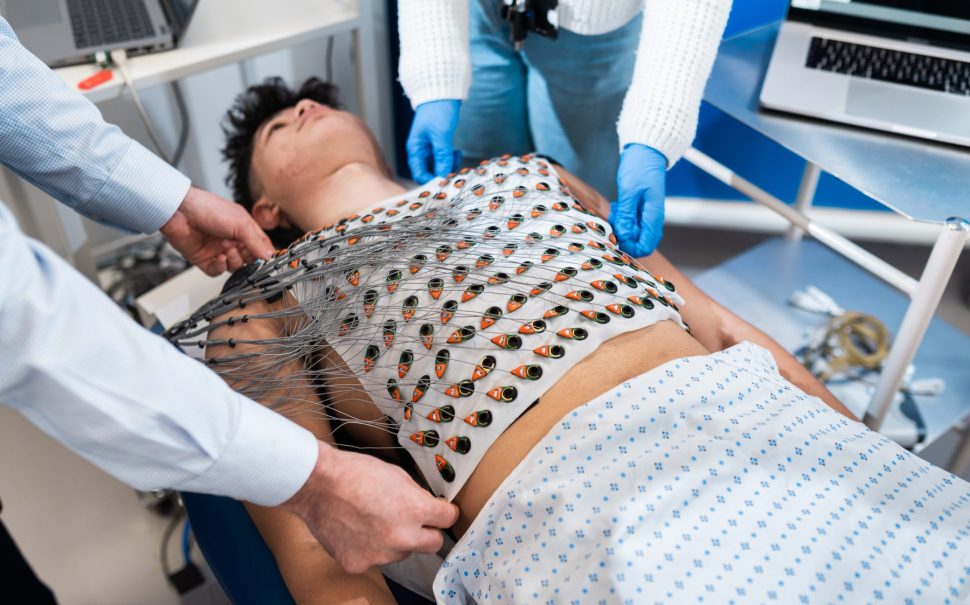A reusable ‘tech vest’ could detect a potentially fatal heart condition earlier than current tests, researchers have found.
Clinicians at Barts Heart Centre and University College London discovered the vests could detect hypertrophic cardiomyopathy (HOCM) earlier than currently possible.
HOCM is a mostly inherited condition which affects 1 in 500 in the UK, and the trial involved fitting an electrocardiographic (ECGI) ‘vest’ with sensors that monitored if the person’s heart showed signs of disease through electrical changes.
Dr Sonya Babu-Narayan, Associate Medical Director at British Heart Foundation, who funded the study, said: “The ECGI vest could offer an opportunity for doctors to better diagnose patients with hypertrophic cardiomyopathy early in their disease course and target their treatment to prevent this.
“The ECG has been at the heart of a doctor’s diagnostic toolkit for more than 100 years, allowing us to understand the electrical pulses that control the beat of the heart.”
Hypertrophic cardiomyopathy, which involves thickening of the heart muscle wall, can lead to the heart stopping altogether – which was the case for Premier League footballer Fabrice Muamba back in 2012 when he suffered a cardiac arrest while playing for Bolton Wanderers.
While some people experience chest pain and breathlessness, in other cases there can be no signs, which could prove fatal.
The findings of the study, which involved 174 patients and 37 healthy volunteers, found the vest identified a further one in four people with HOCM who were not identified with standard techniques used to diagnose the disease.
Study lead Dr George Joy, at Barts Heart Centre, said detecting subtle electrical abnormalities with the new technique allowed clinicians to pick up the condition earlier.
“This is important as it means we can potentially act earlier, providing new treatment to slow the disease as well as fast-tracking individuals to clinical trials that have potential to stop the disease entirely,” Dr Joy said.
It follows as previous work from the same researchers last year found that new scanning methods could detect HOCM before symptoms appeared.
The non-invasive tech vest is being developed as an alternative to current invasive techniques needed to map the heart’s electrical activity.
The next steps of the research will focus on repeating these results in a larger group of patients and following individuals over time to see how early electrical changes detected affect the risk of life-threatening heart rhythms later in life.
Featured image credit: Barts Health NHS Trust


Join the discussion